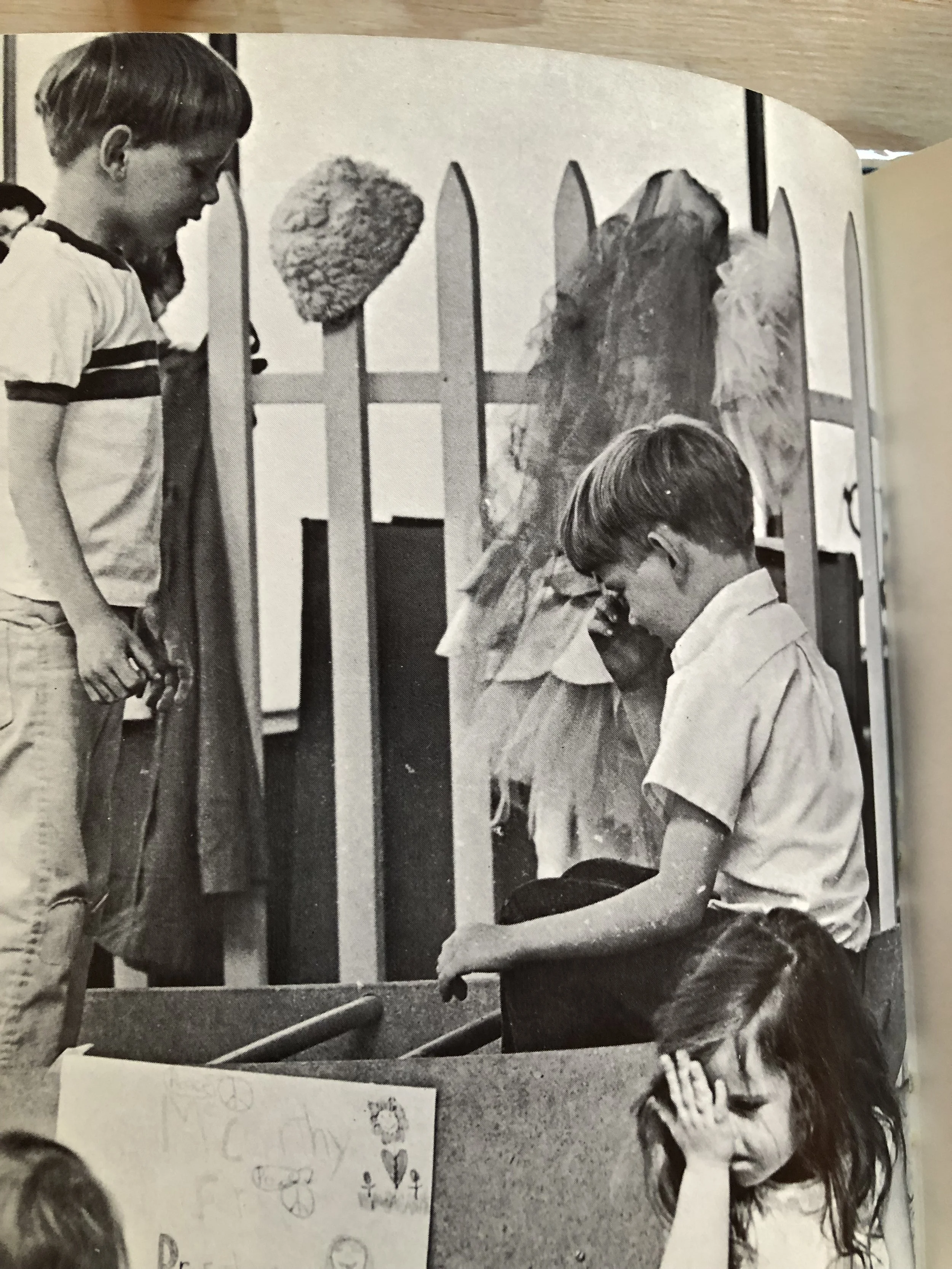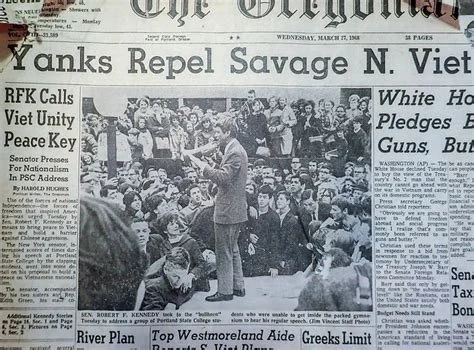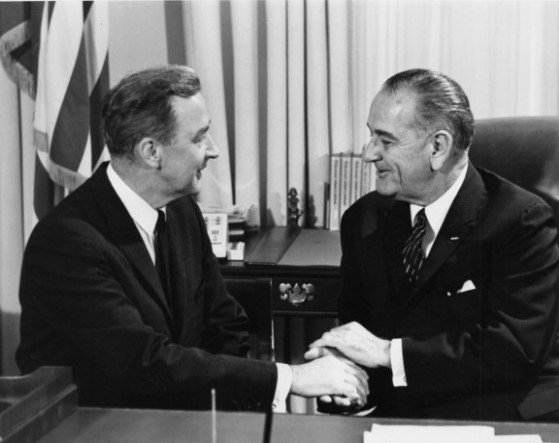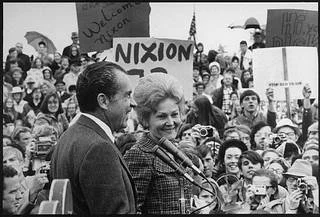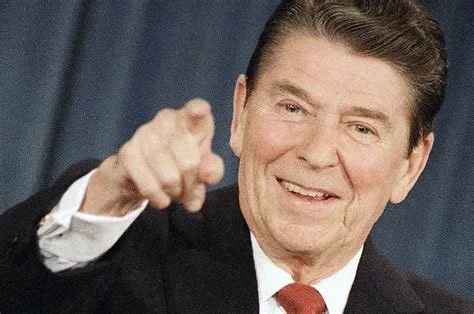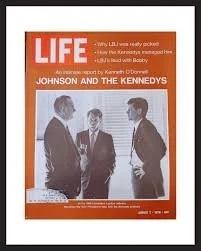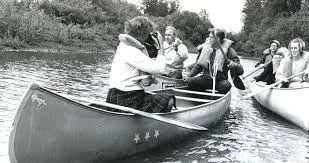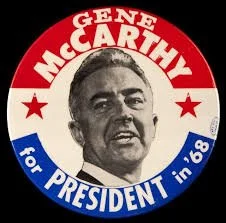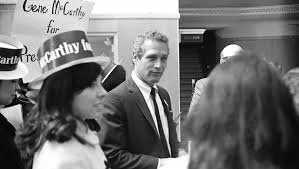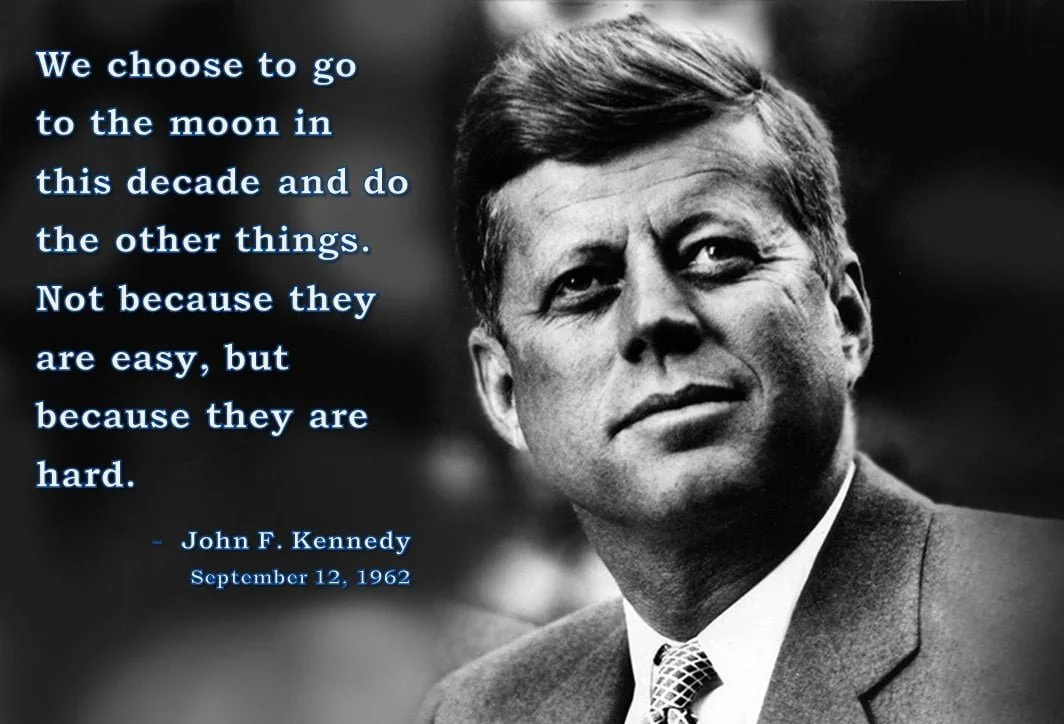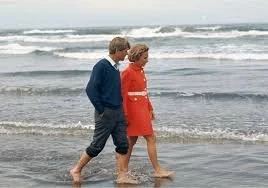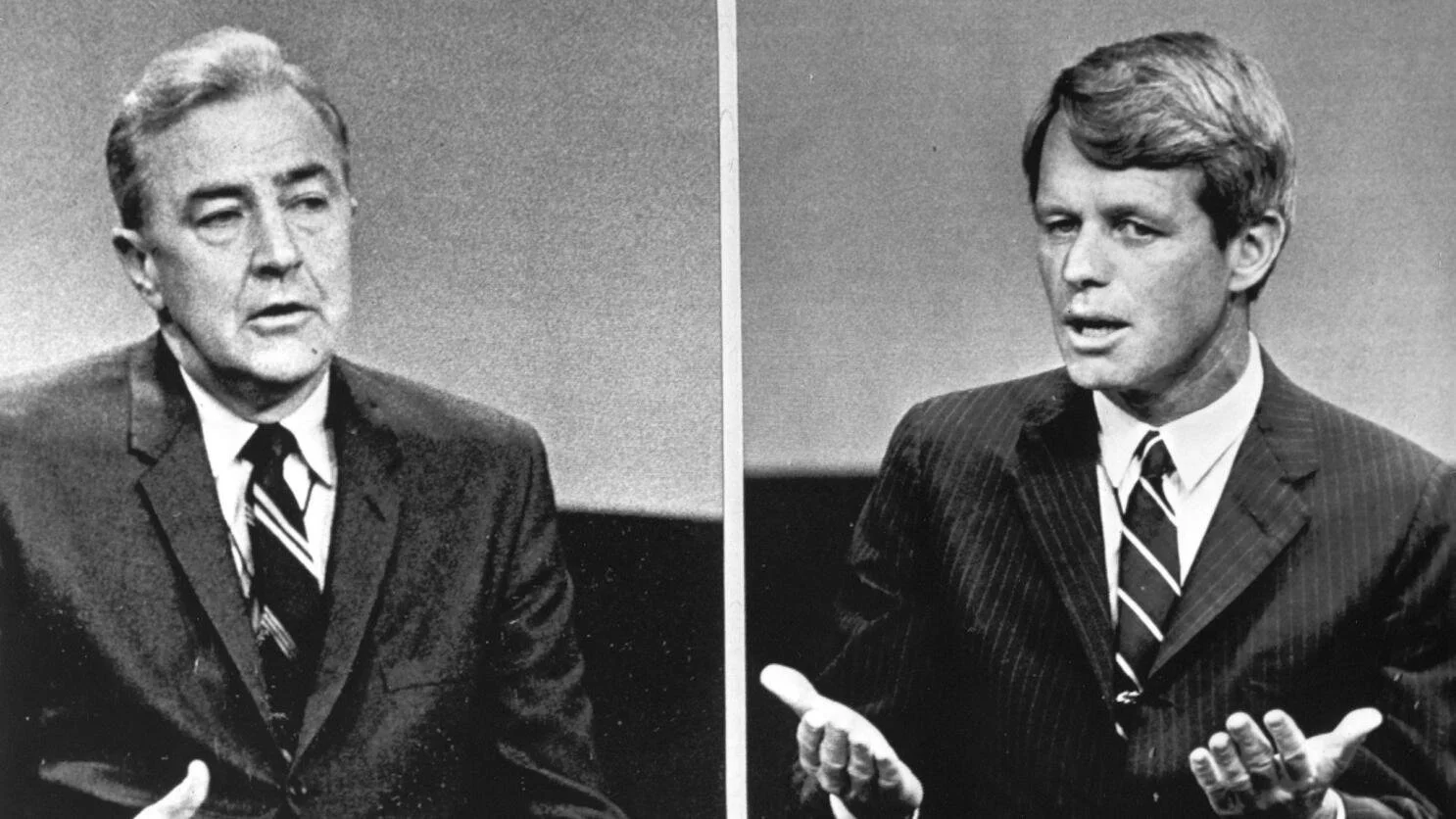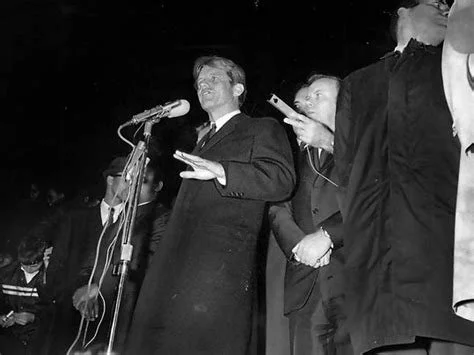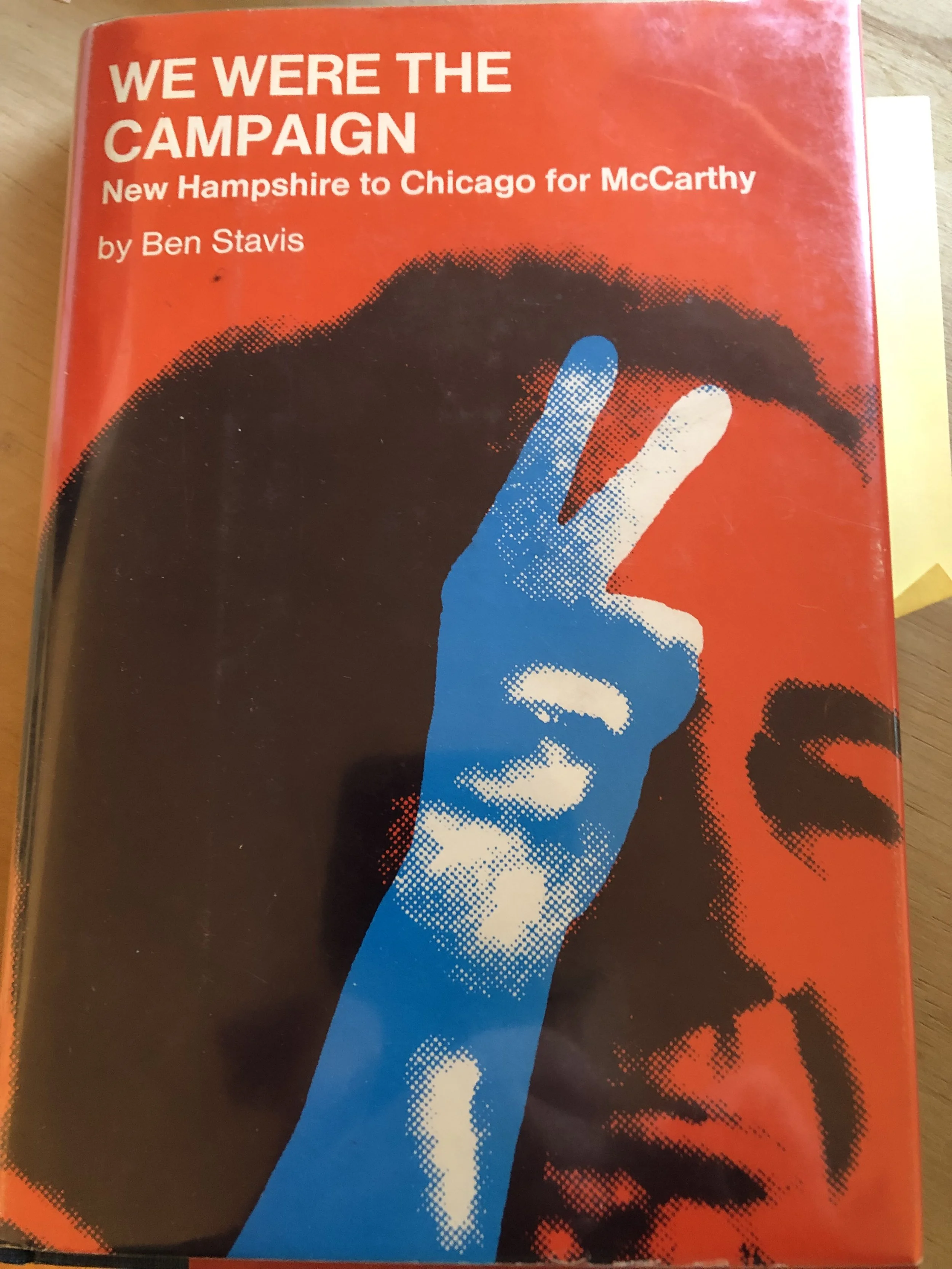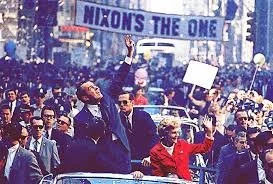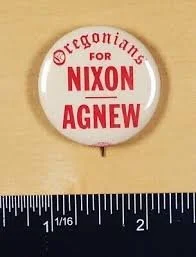Forgotten Battleground Oregon 1968: Bobby vs Gene
Spoiler Alert: Senator Robert Kennedy lost in Oregon to Senator Eugene McCarthy. The following is the “script” for a presentation to The Portland Hibernian Society on April 17, 2025. Co-presenters Tom Markgraf and Bill Gallagher went off script quite a bit. You had to be there at Kells Restaurant. But if you weren’t, this should do. Go raibh math agat.
TOM MARKGRAF - Why now? Fifty-seven years later, we’re about to revisit and relive some of the events of the 1968 Presidential primary in Oregon. Like I said. Why now?
Well, for starters, the son of the man who played a huge role in that historic primary holds a powerful position in the current administration. No Kennedy has been in the Cabinet since RFK Senior was JFK’s Attorney General. (Today, of course, RFK Junior is the Secretary of Health and Human Services.)
ALSO – We're talking about this because Oregon Democrats who voted fired a shot at Camelot. For the first time in twenty-seven elections in which a Kennedy ran.....a Kennedy lost. There are various reasons Senator Robert Kennedy lost to Senator Gene McCarthy and we’ll get into them this evening.
My mother was very involved the successful McCarthy campaign. So that’s another reason we’re doing this now. In fact, here’s a photo of the daycare center created at McCarthy Headquarters for children of Moms For McCarthy. That’s me and my little sister on the right, my brother’s on the left.
And finally, we’re doing this tonight because it’s a really good story about the success of the Irish Diaspora in America. The Kennedy connections to Ireland are well known. But Gene McCarthy was also a proud grandson of Erin. Both men were Catholic. And both were Celtic. Oregon voters judged these two men and sent a message on May 28th. Sadly, that message was drowned out by the gun shots of June Fourth, 1968.
BILL GALLAGHER - Slow out of the starting gate for the Democratic Primary, the RFK campaign took over the the Lloyd Center from the the spiral staircase that was once there. This happened on March 26,1968, just ten days after RFK announced he was running for the Democratic nomination for President. Bobby knew Portland. He ran his brother's successful campaign for the Democratic nomination in 1960 and Oregon was a key win on the road to the White House.
TOM - At that moment in history, here’s who RFK would have to defeat to win the nomination in Chicago in August.
LBJ – Lyndon Baines Johnson. Thirty sixth President of the United States. Elected in a REAL landslide in 1964 and widely assumed to be ready to run for a second full term. He and Bobby Kennedy detested each other. His popularity was declining as things went badly in Vietnam.
Senator Eugene McCarthy. The Senator from Minnesota was running on a peace platform. Opposing LBJ’s policies in Southeast Asia. In November of 1967, when Bobby said he wouldn’t run against LBJ, anti-war Democrats convinced McCarthy to take on LBJ. (This after Senator George McGovern also refused to run.)
McCarthy and now RFK were taking a big chance. A sitting President hadn’t lost his party’s nomination for a second term sine 1882 – Chester A. Arthur. In the New Hampshire Primary on March ____ LBJ won with 49% of the vote. But the fact that McCarthy got 42% seemed to show that LBJ was vulnerable. (Makes you wonder why no Democrat was ready to run against Joe Biden before he left the race.)
BILL - In the Republican Primary in Oregon there were three candidates but one had a commanding lead.
Richard Nixon. Nixon won the GOP primary here in 1960 with 94 percent of the Republican vote. (Rockefeller got 4%.) In Oregon at least Nixon defeated JFK in the November General Election – 52% to 47%. But JFK won the states he had to.
(Even Multnomah County went for Nixon in 1968. Voters here haven’t backed a GOP presidential candidate since.)
Also running were Nelson Rockefeller and Ronald Reagan. Both were Governors of large states. Neither had a prayer against The New Nixon. The Oregon Primary would be Rockie’s exit and Reagan’s entrance on the stage of US politics.
TOM - I need to talk here a bit about Oregon history. We were one of the first states to let the voters choose the nominees for President. Believe it or not for the longest time Presidential candidates were chosen by Democratic and Republican party activists and bosses in backrooms and at conventions. The same Progressive Era reforms that gave Oregon its Initiative and Recall processes gave the voters the power to pick Presidential candidates. In 1968 most states still didn’t have primaries. But WE did. Yay Oregon.
TOM – In 1964 LBJ was elected President with 61 percent of the popular vote to 39 percent for Barry Goldwater. The biggest popular vote margin of victory since 1824. We may never see that big a margin again. He racked up 486 electoral votes to 52. But by March 1968 it was a very different story. His approval rating in 1966 was Above Seventy Percent by January 1968 it was Below Forty Percent. And there was one big reason. Vietnam.
BILL - Three quotes. “We are not about to send American boys nine or ten thousand miles away from home to do what Asian boys ought to be doing themselves.” LBJ 1964
“Communists are trying to wreck the moral fiber of the country through the activities of Vietnam dissenters.” LBJ 1967
“For it is not enough to allow dissent. We must demand it. For there is much to dissent from.” RFK 1966
TOM - Vietnam tore this country apart. Tensions came to a head in 1968. Massive, coordinated attacks by the Viet Cong in South Vietnam came to be known as the Tet Offensive. America didn’t lose but serious vulnerabilities in our military effort were exposed. The number of dissenters in the nation grew. Candidates staked out their positions. RFK got over his reluctance to criticize a war his brother started.
TOM – The top two Democratic politicians in Oregon in 1968 were Congresswoman Edith Green and Senator Wayne Morse. Green Ran RFK’s campaign as she chaired JFK’s campaign in 1960.
BILL– Then there was Senator Morse. There weren’t many Senators who opposed the war in Vietnam with as much passion as Oregon’s own Wayne Morse. Senators Kennedy, McCarthy, McGovern and Hatfield were on the same side as Morse, who was running for reelection to his fifth term in the Senate in 1968. If you think he would endorse either of the anti-war candidates, you’re wrong. Morse didn’t want to lose the support of those Oregon democrats who were supporting McCarthy if he endorsed RFK and vice versa. And he didn’t want to alienate those conservative Dems who still supported LBJ while he was in the race. Morse had a bit of America First in him. He ran on removing 4 of the 6 US Army Divisions from Germany because we were spending two and a half billion to keep them there. and quote “Traveling around the country, Morse says he sees draftees headed into military service “while the South Viets won’t even draft their DRUGSTORE COWBOYS.”
Morse won the nomination over Bob Duncan but in November 1968 he lost his Senate seat to...........Any guesses? Bob Packwood.
TOM - One of the first places RFK stopped when he came here to campaign was the University of Portland. He said he did so because his brother JFK had skipped an appearance at the campus when he was campaigning in Oregon. Here’s what Bobby told the crowds of students about Vietnam. “I was wrong in 1962. I learned something but I was wrong. I was willing to admit that.” It was under JFK that America got seriously involved in Vietnam. As number one advisor to the President, RFK’s fingerprints are all over the policies that LBJ supersized in the mid-sixties. But, as the kids at UP heard, he admitted he was wrong. Would that be enough to attract Gene McCarthy followers on May 28th?
BILL – Any Gene McCarthy supporters here tonight?
Here's Gene McCarthy in five quotes from the time of the Oregon Campaign.
“I would say I don’t approve of what he has done.” Proper. Measured.
"We've tested the enemy now, and we know his techniques ... we know his weaknesses.” Aftr RFK beat him in Indiana.
“The country has been more responsive to the Oregon Primary than all the others….indicating the quality of your judgement.” Can you imagine that said to a crowd?
“The same people cutting your forests cut all ours down years ago. All Minnesota has to show for it are a few art galleries done by timber barons.” There goes financial support from big timber.
“About two days before the election, there will be the rumor that a threat has been made on Kennedy’s life.” Did he really say that? Yes.
On Election Night in Portland. “We proved here we had the best horses and the best wagon.”
TOM - Gene McCarthy. Senator from Minnesota. Professor. Center left. Once a Benedictine monk. Very anti Vietnam War. He was the choice of anti-LBJ organizers after Senator George McGovern turned them down when asked to take on LBJ.
TOM – Both candidates included plenty of campaign appearances in Oregon on their schedules. Occasionally campaigning within a few miles of each other. Here’s some footage of an appearance at the Shopping Center by RFK and some good friends.
BILL - Let’s talk about celebrities who endorsed the various candidates. This is not a complete list. Some of you will not remember these people.
RFK supporters – John Glenn, Terry Baker and Rafer Johnson as you just saw Also campaigning for him here in Oregon were Patty Duke, Warren Beatty, Roosevelt Grier and The Kingston Trio. Appearing elsewhere were Bill Cosby, Sonny and Cher, the Byrds, Sammy Davis Junior and Jack Lemmon.
McCarthy supporters in Oregon –Paul Newman, Myrna Loy, Jules Feiffer, Arthur Miller, Jack Jones and Jill Saint John. Jill Saint John – Actress, Bond girl, lots of tv in the 60s and 70s. She was asked by the Oregonian society reporter who covered campaign celebrities, “Aren’t you worried about what supporting a political candidate will do to your career.” She answered, indignantly, “CAREER! Who cares about a career if you don’t have a country.”
TOM – Patty Duke stayed at our house! During the John Kerry Campaign in 1980. Our family had become friendly with Patty Duke in 1968. ....One other thought on the celebrities. Vera Katz was just getting started in politics in Portland when she volunteered on Bobby’s campaign. Quote - “He came to Portland, and I was involved in scheduling a lot of celebrities that came to town. We could have done without a lot of those celebrities; they were more work than help.” That’s Vera.
BILL – Before he got to the Oregon Primary on May 28, Bobby Kenedy won every Primary he entered. Indiana on May 7 – 42% of the vote to McCarthy’s 27%. Same day - District of Columbia 62%. May 14 – Nebraska 51% to 31%. Then came Oregon.
TOM - April 17, 1968, was almost six weeks out from the Primary but on that day RFK campaigned in Sringfield and Eugene. He went to Mark’s Big M Shopping Center, the Park View Terrace Complex, the Celeste Campbell Senior Citizens Home and a logging site in Maricola. That night he spoke at a hotel in Portland. At some events, the crowds weren’t showing up. When they did, they weren’t as enthusiastic as he remembers crowds being during his brother’s campaign in Oregon in 1960. On a Saturday morning at Union Station in downtown Portland there was supposed to be a big send off for the Beaver State Special on a campaign run the old-fashioned way. And there to cheer the candidate were – at the most – 200 people, many of them friends and family members of campaign workers. 200 people at Union Station is not a lot.
BILL -Some protest signs of the times against Bobby. “Father Ho Loves Bobby” "RFK For President Of Planned Parenthood Association – He Has The Experience” “RatFinK” Sign(s) of something that JFK never encountered while campaigning in Oregon were organized protests. Of course, he wasn’t running against a candidate like Gene McCarthy who had motivated millions of college students across the country to campaign for him, even if it meant criticizing RFK. Maybe we should explain those signs – Father Ho – That would be Ho Chi Minh – leader of the Viet Cong. The Planned PArenthoosd sign....is very long. A reference to “having experience” might be scandal-related. RatFinK speaks for itself. Some of you may remember that term of non-endearment.
BILL – Here’ what Bobby once said about Catholic nuns - ““The sisters always come out for the Democrats, but the monsignors and bishops always stay home and pray for the Republicans.”
TOM – That may have been the case when a Kennedy was running against a Protestant. But Gene McCarthy could almost out-Catholic RFK. He had been a Benedictine monk for a year. Son of an Irish dad and a German mom who were devout Catholics. JFK joked that “Gene thinks he’s a better Catholic because he’s read more Thomas Aquinas.” By 1968, a candidate’s religion was not especially newsworthy. (Geroge Romneya Mormon, ran early in the Republican primary but dropped out of the race for reasons other than anti-Latter Days Saints sentiment.) RFK and Gene McCarthy split the Catholic vote in the Oregon Primary the same way they split the Democratic vote. The fact that they were both Irish Catholic represented the real arrival of sons and daughters of Ireland in American politics at the highest level. Is that – being Catholic and running for President - a big deal anymore? Our current vice president is Catholic. Six of the nine members of the Supreme Court are Catholic. Trump won the Catholic vote 56% to 41%
BILL - JFK on the moon and RFK on the moon - “We must deal with our own society before we walk on the moon. People must be able to walk safely on our city streets before we go into space.”
BILL– America was a different country, and Oregon was a different state in 1968 than it was when JFK was President. JFK gave that speech at Rice University in Texas on September 12, 1962. In Pendelton on May 22, 1968, RFK had that to say about landing on the moon. Of course, a year and two months later we did just that.
TOM – Bobby Kennedy described himself as a sensualist. Very aware of his surroundings. Very into nature. Emotional. Romantic. Celtic. So, it’s inevitable that when he’s in Oregon he’s going to check out the Pacific Ocean. Bobby ended up doing more than campaigning a few days before the May 28th primary. His wife Ethel, pregnant with their 11th child (Rory for the record) was with him this time and they went to Astoria. Then to the site of the Peter Iredale shipwreck. What was supposed to be a one mile walk on the beach turned into a three-mile hike. At the end of which, Bobby reportedly – no photos – stripped to his boxers and went for a swim. In the 54 degree waters of the Pacific Ocean. And the locals laughed at him. Who swims in such cold water. But that was Bobby.
BILL - A reporter named Jules Witcover asked RFK in the closing days of the campaign when he was in Portland what was wrong with the campaign. Bobby wasn't happy. QUOTE “You’re a political writer. You can look around and see what it is.” But what was it? We’ll get to that.
TOM – In the final weeks of the campaign, despite some big crowds like these, RFK sensed he wasn’t going to extend his winning streak in Oregon. But it didn’t seem like he’d given up. He called in his most trusted campaign advisers. He campaigned tirelessly. There were large enthusiastic crowds like this one at Portland State College. See the arrow? He committed to 18-hour days and wanted to reach 50,000 voters. In mid-May he was leading McCarthy by two points – 27 to 29. LBJ, who wasn’t even running, was getting 16% and Hubert Humphrey 12%. What WAS the problem? The record doesn’t show what the reporter told Bobby, but the same surge of support felt in Indiana and Nebraska just wasn’t there.
BILL - When the Presidential Primary results came in no one seemed too surprised. On either side. Nixon won easily. And RFK didn’t win. McCARTHY CUTS KENNEDY WIN STRING was the headline in the Oregonian on the morning of May 29, 1968. “First candidate to defeat a Kennedy” was the lead paragraph. Here’s some instant analysis 57 years after the fact. Was this primary a referendum on the Vietnam War? If so, Democrats were overwhelmingly against the war. BUT. The combination of Republican and Democratic votes backing the policies in Vietnam ere in the majority. Some people think Oregon voters sent a loud and clear anti-Vietnam war message in the Presidential Primary of 1968. Not so. I should note that even though LBJ had left the race his name was on the ballot. His vice President Hubert Humphrey was running but wasn’t on Oregon’s ballot. You could characterize the vote for LBJ – who wasn’t running – as a vote AGAINST McCarthy or Kennedy. A good share of the union vote went LBJ’s way. What Oregon sent was a mixed message.
TOM – So, Gene McCarthy comes out of Oregon as the winner. RFK comes in second but stays in the race. Humphrey continues to rack up delegates in non-Primary states. The idea that it was a two-candidate race for the Democratic nomination – RFK vs Clean Gene – is a myth. Hubert Humphrey was the preferred candidate of Democratic party insiders. And there were a lot more delegates leaning to Humphrey than were pledged to RFK and McCarthy.
TOM - Why did Bobby Leo Oregon in sixty eight?
BILL - Five Reasons Why. One. He started too late. Two. There weren’t many voters of color in Oregon. Three. McCarthy outspent him. Four. McCarthy’s supporters were more enthusiastic. Five. He refused to debate Gene on TV in Portland.
BILL – Let's go through these reasons one by one and see what you think. Number One. JFK’s campaign credo was It’s Never Too Early to Start Campaigning. When he ran here in 1960, he started showing up in 1958. Bobby started campaigning in Oregon on March 25.
.Number Two. RFK’s surprise win in the first Primary he entered – the Indiana Primary on May 7 – was helped by his getting 90% of the Black vote from Indiana’s urban areas. Oregon’s Black vote was tiny for reasons we’ve discussed here before.
Number Three. McCarthy spent a lot more time in Oregon, and he outspent the Kennedy Campaign. Quick story. When RFK made his first campaign appearance in Portland there was a press conference at the Benson Hotel. Afterwards, the Oregonian reported, the bar was open, but it was a cash bar. The Kennedy campaign usually bought the drinks but this time things were moving so fast that cash hadn’t arrived from back East to cover the bar tabs of thirsty reporters.
Number Four. McCarthy campaign organizers did their work well. Kennedy’s crowds were often filled with high school students too young to vote. McCarthy supporters college age and up had the extra incentive of beating the man who wouldn't run against LBJ until McCarthy showed so well in New Hampshire. Opportunist. Typical politician. That’s how they saw this so-called liberal icon. Just another candidate.
Five. Refusing to debate McCarthy had to have hurt RFK on election day. Imagine a Sunday night debate on KGW or KATU or KOIN 48 hours before the polls opened. Everybody would have watched. But RFK wasn’t a confident debater like his brother was. It could be said that he didn’t want to debate because he was afraid he would lose to McCarthy. That’s the same kind of hesitancy that kept him from entering the race until Saint Patrick’s Day. Fear of losing is a proud candidate’s curse.
TOM – When it comes to what happened to the Kennedy Campaign after the setback in Oregon, the rest really is history. With a significant bloc of California’s Democratic voters being Black and Brown, RFK saw the enthusiasm that was missing at some of his stops in Oregon. McCarthy’s campaign couldn't keep up. He would later say they gave it everything they had in Oregon. In a two-candidate race, RFK took 46.2% of the Democratic votes and McCarthy 41.7%. RFK’s candidacy had come back to life after defeat in Oregon. Resurrection City is what he called Los Angeles. The celebration on election night ended abruptly when Sirhan Sirhan shot and killed RFK.
Slide – Black Out.
TOM – You know how this story turns out. McCarthy won the Primaries in Illinois and New York after California. But in August party regulars in Chicago went for Humphrey in a big way at a convention marked by mayhem. Meanwhile the Republicans had picked Nixon as their candidate. On November 5 America elected him President. Oregon voted decisively for Nixon. The national outcome was closer than it was in Oregon. Nixon barely beat Humphrey; the margin was just six tenths of one per cent or about half a million votes. George Wallace got just about ten per cent of the vote. What if RFK had not been shot and killed? Could he have won the nomination and faced Nixon for the Presidency? It would have been a very different election. And regardless of the outcome that November we would have been a very different country. In what way, no one can say.


